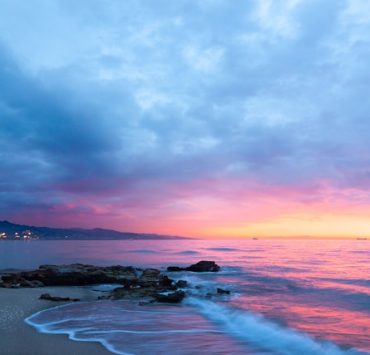Islands of Isolation: How Filipinos became prisoners of their own beliefs

The Philippines is famously described as a country of more than 7,000 islands, an archipelago that evokes beauty, diversity, and resilience.
But in truth, we are more isolated than we realize. While we pride ourselves on our geography, we’ve also become prisoners of our own cultural, religious, and political subjectivities. Take, for instance, Christian Albert Gaza, a digital provocateur known for lobbing personal attacks at celebrities and public figures. He thrives on spectacle, cloaked in self-righteousness while hiding abroad, far from the consequences of his words. Gaza is not an anomaly; he is a mirror. In him, we see a society that rewards noise, selectively punishes dissent, and forgives its hypocrisy.
Speaking of Gaza—the place, not the person—the name evokes one of the most painful faultlines in modern geopolitics. The Green Line separating Israel from Palestine is both an invisible boundary and a brutal wall. The two-state solution remains a dream deferred as religion, politics, and history collide violently over who has the right to exist and belong.
This is a global phenomenon, but it resonates deeply in our backyard. Few remember that the 1933 Reichskonkordat, signed by the Vatican and Hitler’s regime, helped legitimize the Third Reich. This is not just historical trivia; it is a cautionary tale about what happens when faith is used to sanctify power.
After World War II, the papacy took a symbolic journey: from Poland (John Paul II) to Germany (Benedict XVI), then to Argentina (Pope Francis), the same country where many Nazis sought refuge. Filipinos once hoped Cardinal Luis Antonio Tagle would be the first Asian Pope. Instead, the College of Cardinals elected a pontiff from the United States, marking a curious counterpoint to America’s turbulent embrace of Trump-era nationalism and conservative religiosity.
Meanwhile, in the Philippines, we continue to conflate faith with governance. Our “Marites” culture, obsessed with gossip and personality over policy, bleeds into our politics. The Duterte era is a prime example. His brutal war on drugs was cheered by many as strong leadership. But years later, the narrative is unraveling. Duterte is now in The Hague, facing proceedings before the International Criminal Court for crimes against humanity. The same man who promised to rid the country of drugs empowered allies with questionable ties, oversaw pandemic-era scandals like Pharmally, and operated within a circle where the law was often bent to serve power.
And still, many defend him because idealism, when unexamined, often becomes denial.
But denial extends beyond politics. It reaches into our private lives. I got married at 18. I now live in a complicated, unresolved relationship, trapped, like many others, in a country where divorce remains illegal. Ours is the only nation on earth, aside from Vatican City, without divorce. Our Constitution, heavily influenced by canon law, continues to dictate civil liberties in a supposedly secular democracy.
Now, the divorce bill is pending in the Senate. With 13 votes needed and 12 new senators set to take office on July 1, 2025, we are at a crossroads. Will we finally move forward, or wait again, for a new pope, a new Duterte, another bishop’s blessing, or, heartbreakingly, the death of a legal spouse?
The Catholic Church has the right to shepherd its flock. But it must not dictate national policy. If we allow religious institutions to govern civil law, we risk fortifying emotional and moral walls around ourselves. We create a quiet apartheid of the soul, a Great Wall of silence between neighbors, even as we live in an archipelago of 7,400 islands.
In the end, no Filipino should be an island, especially not in love, not in liberty, and not in law.
Dr. Melben Angel S. Jochico,
Bantayan District Hospital, Cebu

















PH-China: Troubled present, hopeful future